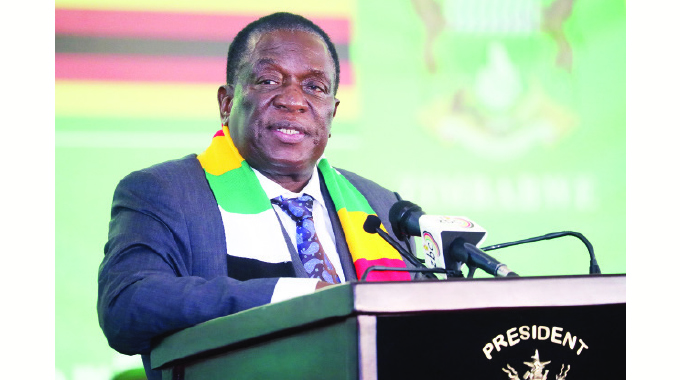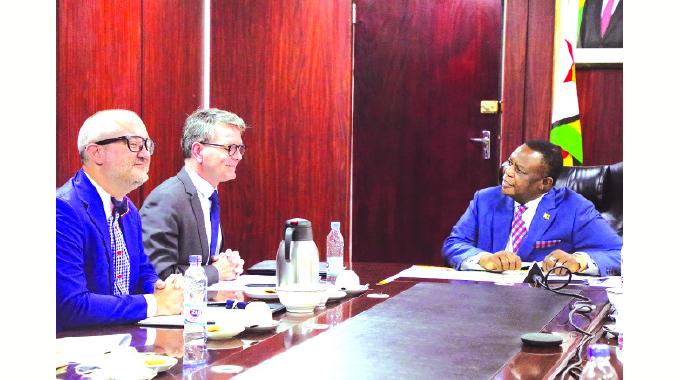National Security Council Act gets President’s nod

Farirai Machivenyika-Senior Reporter
The National Security Council Act to expand the membership and functions of the National Security Council, a constitutional body chaired by the President and established by Section 209 of the Constitution, has now become law after approval by President Mnangagwa.
The Constitution provides that there is a NSC consisting of the President as chairperson, the Vice Presidents and such ministers and members of the security services and other persons as may be determined in an Act of Parliament.
The new Act is the Act that now determines these other members and their terms of membership.
The constitutional functions of the NSC are: to develop the national security policy for Zimbabwe; to inform and advise the President on matters relating to national security; and to exercise any other functions that may be prescribed in an Act of Parliament, again now being listed.
But the Constitution does put in limits, particularly the need to live as equals, that security measures need to be constitutional and legal, and that fundamental rights of Zimbabweans are respected.
The commanders of the security services must provide the NSC with such reports on the security situation in Zimbabwe as the council may reasonably require.
The National Security Council Act lays down that the NSC is the top body dealing with matters of national security and includes in its membership the commanders of the security services, the Chief Secretary to the President and the Cabinet, the Ministers responsible for intelligence, security, defence, police, prisons and finance with the President empowered to appoint any other minister to the council.
The listed commanders, Chief Secretary and the listed ministers who must be on the council are there ex-officio, that is by virtue of their office, and so their membership terminates when they cease to hold office with their replacements taking the seats. Any additional ministers appointed by the President sit in a more personal capacity and their appointment can be terminated at the discretion of the President.
The Act lays down that the council must: regularly review national security policies in view of any prevailing national, regional and international security developments and direct the taking of appropriate action; have regard to the functions of any agency of the State or any person relating to or is involved in the implementation of any legislation which has national security implications; consider and approve proposals by any security service relating to security or defence strategy; consider national security reports submitted to the council by commanders and give resulting general or specific directions to the security service concerned; have regard to Zimbabwe’s security obligations under international agreements; generally keep the State in a state of preparedness to meet any threat to its security; exercise any other function which the Council or the Cabinet considers to be necessary in the interests of national security or which is imposed by any other law.
The President decides when and where the council meets, but must call a meeting at least once every three months.
“Meetings of the council and of its committees are not public but the council may inform the public of any resolution of the Council where it is necessary in the public interest to do so,” reads the Act.
Clause 6 requires reports from the commanders to be submitted to the council for its consideration. Clause 7 gives the council power to issue security-related directives to the security services or to any person and necessary support must be given to those directed so they can comply.
Security information needs to be kept confidential. No member or former member of the council may communicate to any person, in or outside Zimbabwe, any information obtained as a member of the council.
And no one, without the written authority of the Council, is allowed to disclose any security-related information where that person concerned is under an obligation in terms of any law, including the new Act, any information.
But the President, in his State of the Nation Address may also report on the state of security
The Constitution provides: that the national security objectives of Zimbabwe must reflect the resolve of Zimbabweans to live as equals in liberty, peace and harmony, free from fear, and in prosperity; that the national security of Zimbabwe must be secured in compliance with the Constitution and the law; and that in particular, the protection of national security must be pursued with the utmost respect for the fundamental rights and freedoms and the democratic values and principles enshrined in the Constitution and the rule of law.









Comments